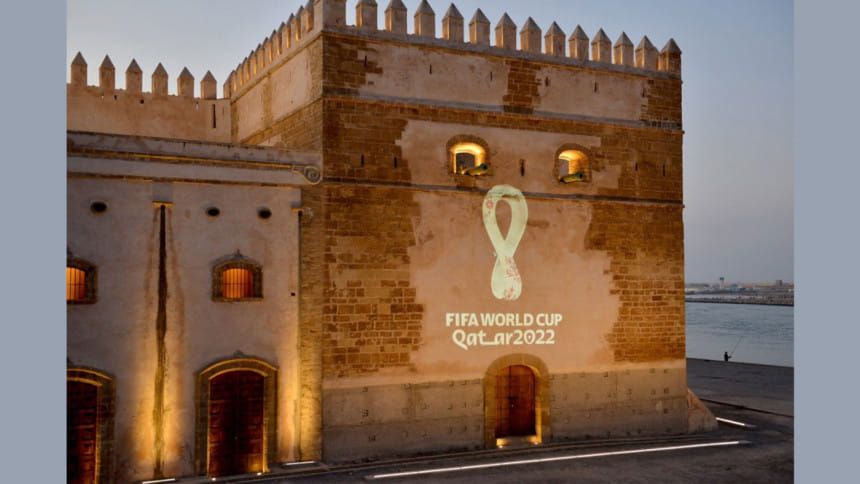FIFA World Cup Qatar 2022

All sectors and walks of modern life are touched by sustainability and so too is the construction industry-whether it is buildings, airports, highways or stadiums. Simply put, sustainability engulfs three aspects: ecology, economy and environment. Sustainability is badly needed to avert the worst impacts of climate change. On the other hand, innovation can make something better or effective. FIFA World Cup Qatar 2022 illustrates best how a sports event can be refurbished with innovation and sustainability and thereby making the event effective to negate the externalities of climate change.
The pinnacle of sustainability cantered on the construction of the stadiums and hotels shed lights on the: i) use of recycled and locally sourced materials wherever possible; ii) minimisation of construction waste; iii) use of less water; iv) more energy efficient; and v) green practices in the hotels.
Most countries would usually present their stadiums purely as a design idea and not as driven by innovative technology. Qatar wanted to ensure it was unique so it would stand out among other bidding countries. Accordingly, Qatar presented their stadium designs in a new way-as technology. Organising an energy-efficient tournament was the core consideration behind the makeup of the designs of the 2022 FIFA World Cup stadiums. One aspect of innovative technology that could be mentioned here is the design of the cooling system of the stadiums intended to achieve desired energy efficiency in cooling. This pioneering cooling technology developed by Qatar requires the stadiums be cooled only two hours before the match and reduce the consumption of energy. Moreover, the system will prevent hot air creeping into the venue.
Ras Abu Aboud Stadium, made from modular shipping containers, which will be repurposed into a range of sporting facilities after the FIFA World Cup, highlights another innovative technology employed in the construction of stadium for the first time. Someone will be astounded to see the innovation in the designs that reflect the tradition and values of Qatar as well. For example, Al Janoub Stadium, located at Al Wakrah, took the shape of an oyster on which Qatar's primitive livelihood was mostly based on.
In order to ensure that stadiums are being built in a sustainable manner, a certification framework has been adopted under the purview of Global Sustainability Assessment system (GSAS). According to the mandatory requirement of FIFA, each Qatar 2022 stadium must achieve a 4-star rating under the GSAS. As proclaimed by Qatar, all four fully completed venues have secured 4 or 5 star design and build ratings from GSAS. Education City Stadium, which had a virtual launch in 2020 during the peak of the Covid-19 pandemic, has a 5-star GSAS rating, whereas Khalifa International Stadium (launched in 2017), Al Janoub Stadium (launched in 2019) and most recently inaugurated Ahmed Bin Ali Stadium (launched in December 2020) have 4-star ratings. Al Bayt Stadiumy, the venue of the opening match on November 21, 2022, which impressed the FIFA president, has received a 5-star rating from GSAS. Qatar expects to get 4-star rating for the three other stadiums-Al Thumama, Ras Abu Aboud and Lusail, where the final match will be held on December 18, 2022.
Qatar is committed to delivering the most sustainable sporting event in history in 2022. One aspect of the plan is to deliver a carbon neutral tournament. As a way to offset carbon footprint, Qatar has developed a Turf and Tree nursery for replanting across stadium sites and other areas. After the tournament, Tree & Turf Nursery will be transformed into a public park thereby ensuring the legacy of a green tournament. Qatar airways, the official airline of the FIFA World Cup 2022, also work with the aviation industry to achieve environmental goals.
An assessment report of sustainable FIFA World Cup Qatar 2022 reveals that the construction of stadiums has been 30 percent more energy efficient than international benchmark, used 40 percent less water than the international benchmark, and green landscaping has been instrumental for creating a cooling effect. Hotel industries, which will accommodate the teams and visitors, have been encouraged to employ sustainable practices and reportedly they have endeavoured to practice the issues of sustainability. For example, one Doha hotel replaced 75 percent of the old lightbulbs with energy efficient fixtures which enabled them to reduce 9 percent of energy consumption. In another case, the hotel has come up with an innovative waste management policy that focuses on 100 percent single use plastic free hotel.
Innovation and sustainability have been central to the mega event that is FIFA World Cup Qatar 2022. Qatar's case is a new addition to the field of study of how innovation and sustainability can play a vital role in making a sports event environmental friendly. Qatar's case may prove to be useful to strengthen the respective efforts to address the climate factors for other nations, especially on the eve of the disastrous effects of climate change.
Dr Muhammad Mustafizur Rahaman is currently Counsellor (Labour) at the Embassy of the People's Republic of Bangladesh to the State of Qatar. He holds Ph. D in International Public Policy from the School of International Public Policy, Osaka University, Japan. He was also International Research Fellow of Japan Society for the Promotion of Science at Kyoto University Japan (2014-2016).

 For all latest news, follow The Daily Star's Google News channel.
For all latest news, follow The Daily Star's Google News channel. 



Comments